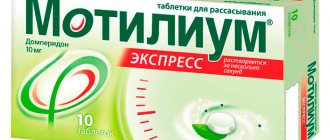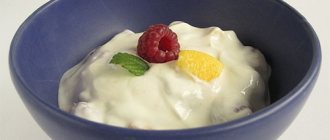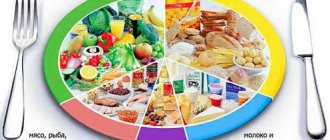Causes of vomiting with pancreatitis
Patients often ask: can people feel sick with pancreatic disease? Experts note several reasons for the development of nausea and vomiting during inflammation of the organ: a lack of enzymes that digest food, as well as their insufficient conversion into the active form.
In these cases, the food is not subjected to the necessary chemical treatment. The bolus of food remains in the stomach and initial parts of the small intestine for a long time. Fermentation processes with the release of toxins cause the patient to develop an intoxication syndrome, which leads to nausea and vomiting with pancreatitis.
The following factors can provoke an attack of dyspeptic symptoms:
- alcohol abuse;
- carbonated drinks and coffee;
- violation of the diet with consumption of fried, spicy, fatty, fast food, heavy meat foods, large amounts of fiber, etc.;
- binge eating;
- ingestion of products that have not undergone sufficient heat treatment.
Following a diet helps control digestion and reduce stress on the pancreas. All patients with nausea due to pancreatitis need to consult a doctor or nutritionist to adjust their diet.
Main symptoms
The intensity and frequency of dyspeptic disorders differ for each patient. However, about 80% of patients with pancreatitis complain of nausea and vomiting. These symptoms have a number of common properties for inflammation of the pancreas:
- are permanent or appear after a diet violation (consumption of flour, fatty, fried, spicy, carbonated or coffee drinks);
- accompanied by pain in the left side or appear after the onset of pain or before it;
- over time, nausea reaches its peak, single vomiting develops, which does not alleviate the patient’s condition;
- vomiting in acute pancreatitis is repeated. Nausea does not go away, but continues to cause discomfort to the patient;
- vomit is parts of undigested food with a rotten egg or rotten smell, which indicates impaired digestion.
Remember! The appearance of any symptoms of pancreatitis is a reason to contact a specialist for advice. The doctor will conduct an examination and prescribe treatment that will help cope with unpleasant symptoms and prevent their recurrence.
With pancreatitis, the patient also experiences pain in the upper abdomen, stool disturbances, increased body temperature, general weakness and other manifestations of intoxication syndrome.
What to do if vomiting develops
If vomiting occurs, medications are used to help replenish lost fluid and restore electrolyte balance:
- infusion therapy to normalize the volume of fluid and electrolytes;
- analgesics;
- anti-vomiting agents.
The latter are used when the attack continues despite treatment. They belong to various pharmacological groups, their use is symptomatic therapy: Domperidone, Domidon, Cerucal, Metoclopramide, Reglan, Osetron, Ciel, etc.
Self-treatment of vomiting fails, because taking drugs in tablet form is ineffective: they do not have time to be absorbed in the stomach. Infusion therapy is required in a hospital setting. It is prescribed depending on the severity of the condition individually in each specific case. Stopping vomiting without further detoxification therapy will cause the accumulation of toxic substances and increased intoxication.
The high mortality rate from pancreatitis and its complications is due to late seeking medical help.
If vomiting occurs, you must contact a specialist for examination, clarification of the diagnosis and prescription of treatment, taking into account the identified causes. Only a doctor can adequately assess the condition and prescribe complete treatment that will lead to success.
Treatment recommendations
Symptoms of pancreatic dysfunction indicate a serious illness that should be treated by a specialist. Therefore, the first thing to do is to seek help from a gastroenterologist. After assessing the condition and functioning of the gastrointestinal tract, he will select therapy and diet.
Many people ask: how to relieve nausea with pancreatitis? Doctors give a number of general recommendations:
- do not restrain the urge to vomit, since everything that causes harm to the body must be removed from the stomach cavity. If the digestive system cannot cope with food, the processes of rotting and fermentation begin in it. Their products are toxic to the human body;
- You should not eat for 10-15 hours. This allows the gland to “rest” and restore the number of enzymes. During this period, you can drink water or rosehip decoction;
- adhere to bed rest and do not make sudden movements, avoid intense exercise;
- apply a heating pad with ice to the left side or apply a cold compress to this area;
- in case of severe pain, chills, poor health, characteristic frequent vomiting in acute pancreatitis, you should call an ambulance. Such symptoms may indicate severe organ damage.
When the acute period of the disease passes, the patient is allowed to introduce vegetarian soups (without prohibited vegetables), light puddings, water porridges, lean meat and steamed fish, cottage cheese, and jelly with a small amount of natural juice into the diet.
It is necessary to avoid foods that provoke exacerbation: coffee, alcohol, fried foods, etc. It is worth remembering that “Pancreatin” is not a panacea for vomiting. It only improves food digestion processes, but does not eliminate symptoms.
Attention! If there are frequent exacerbations, it is best to make an appointment and re-evaluate the condition of the pancreas, adjust your diet and treatment.
First aid during an attack of vomiting
If a vomiting attack begins, you can perform the same actions as during an exacerbation of pancreatitis. First of all, it is necessary to calm the patient, because, as is known, stress can aggravate a vomiting attack. A person needs to be provided with peace. Clothing that may restrict movement or breathing should be unbuttoned or removed.
It is necessary to ensure that the victim does not take deep and sharp breaths, and to help him take a comfortable position to minimize pain. Eating food at this time is strictly prohibited, and drinking water only in small portions (about 50 ml) every half hour.
In case of exacerbation of pancreatitis, intravenous or intramuscular administration of drugs is preferable
In case of vomiting caused by exacerbation of pancreatitis, gastric lavage with solutions should not be done. The only thing that can be done is to facilitate the removal of vomit by pressing on the root of the tongue.
It is not prohibited to take anti-vomiting drugs, but it is better to avoid painkillers, as they can prevent the doctor from making a correct diagnosis. Enzyme preparations like mezim or festal are strictly prohibited, as they affect pancreatic tissue and can worsen the condition.
To relieve pain, you can give antispasmodics: No-Shpa, Drotaverine or Papaverine. They help relax smooth muscles. The medicine can be taken in any form, but intravenous or intramuscular administration is preferable. You can also take pills, but there is a high probability that they will come out along with the vomit, and the medicinal substances will not have time to act.
Elimination of vomiting
How to stop vomiting with pancreatitis? For this purpose, the patient is prescribed medication. Self-therapy is prohibited, as this can lead to progression of the disease and the development of side effects.
Experts prescribe “No-shpu” or “Spazmalgon” in tablets or intramuscularly. These are antispasmodics that help eliminate pain. When asked how to get rid of nausea with pancreatitis, doctors recommend using Metoclopramide and Motilak.
Medicines accelerate the movement of the food bolus from the stomach into the duodenum and subsequent parts of the small intestine.
Pancreatitis - general concepts
Almost all digestive processes in the human body occur with the direct participation of the pancreas. It is the enzymes that pancreatic juice contains that provide the necessary breakdown and further absorption of the main food components: carbohydrates, proteins and fats.
Pancreatitis is the development of inflammatory and dystrophic processes in the pancreas. The outflow of pancreatic juice is disrupted, enzymes accumulate and enter the duodenum. As a result of this, they directly destroy the gland itself. This is a rather severe disease, with a large number of deaths, which can occur in acute and chronic forms.
Pancreatitis most often affects young or middle-aged people, mainly women. Triggering factors for the inflammatory-necrotic process in the pancreas can be cholelithiasis, abundant fatty, fried, spicy foods, large doses of alcohol, a number of medications, psycho-emotional stress, and various traumatic injuries to the gland tissue.
Both acute and chronic processes require immediate consultation and treatment with a specialist, as surgical intervention may be necessary. The percentage of complications and even deaths is quite high, so you need to pay attention to even the most minor signs of pancreatitis.
Medicines and diet
Therapy includes:
- enzyme preparations in courses for a week or on demand in case of diet violations: “Mezim”, “Pancreatin”, “Creon”, etc. Medicines contain enzymes necessary for digesting food: lipase, amylase, protease. It is not allowed to take them in case of acute inflammatory processes in the pancreas;
- analgesic and antispasmodic agents: “No-shpa”, “Spazmalgon”, “Trimedat” and “Solpadeine”. Relieves spasm and pain;
- antiemetic drugs, for example, Cerucal. Ensure rapid movement of the contents of the gastrointestinal tract;
- dieting.
Diet therapy for pancreatitis is characterized by strictness: thermal, chemical and mechanical sparing, 5-6 meals a day and a number of restrictions on products. It is necessary to exclude spicy, fatty and fried foods, flour and sweets, fast food, alcohol, coffee and strong tea.
Patients are also not recommended to drink carbonated drinks. Products that cause increased gas formation in the intestines are prohibited. It is allowed to eat steamed meat, poultry and fish, fresh or stewed vegetables, casseroles and puddings from cereals.
All food should be steamed or served in the form of purees and puddings, because in this form the products are easily digested and do not burden the pancreas. Dishes must be warm. Cold food is not recommended for consumption.
Pharmacotherapy of acute inflammation of the pancreas
Acute pancreatitis is treated with medications from the following pharmacological groups:
- Proteolysis inhibitors (“Aprotinin”) – neutralize the action of enzymes that have an aggressive effect on the functions of the gland.
- Regulators of water and electrolyte balance – “Gastrolit”.
- Antispasmodics - Mebeverine, Drotaverine, Papaverine.
- Proton pump blockers - Omeprazole, Lansoprazole.
- H2-histamine receptor blocker - Ranitidine, Famotidine.
- Antacids - “Phosphalugel”, “Almagel”, “Maalox”.
- Diuretics - Furosemide, Acetazolamide.
- Anticholinergics – “Atropine”, “Platifillin”.
- Hepatoprotectors – “Essentiale”, “Karsil”, “Gepabene”.
- Antibiotics – groups of fluoroquinolones, cephalosporins and macrolides.
- Vitamin complexes – “Vitrum”, “Duovit”.
- Enzymes – “Festal”, “Pancreatin”, “Creon”, “Mezim”.
Folk remedies
In traditional medicine, decoctions with a sour taste are used to eliminate vomiting:
- Freshly squeezed lemon juice is added to 200 ml of drinking water.
- 1 tbsp. l. apple cider vinegar is diluted in 400 ml of water and drunk in one gulp in the morning.
- Peppermint leaves are poured with 0.5 liters of boiling water and infused for 2 hours. Use 1 tsp. before every meal.
- Drink regular green tea without sugar. If you have green tea leaves, you can chew them.
- Herbal tea from chamomile, calendula or calamus in equal quantities is brewed and drunk when nausea occurs.
- A decoction of plantain leaves, fireweed, and dandelion restores the water-salt balance of the body, which prevents vomiting.
- To restore the functioning of the pancreas, make a decoction of celandine, yarrow and calendula. Mix in equal quantities, add boiling water and infuse. Drink half a glass half an hour before meals.











